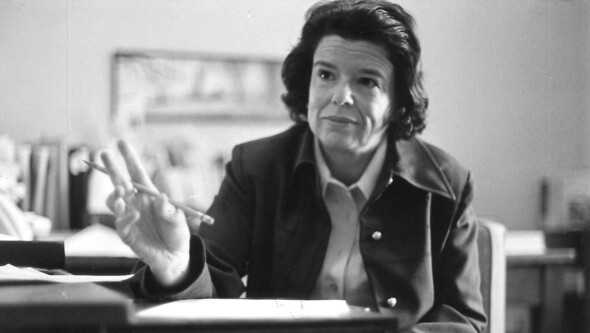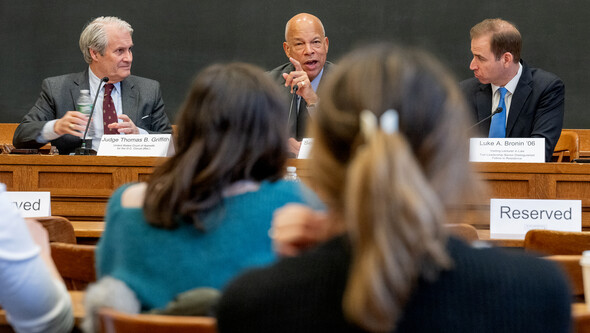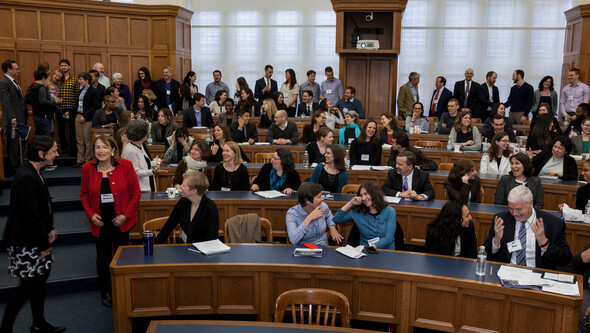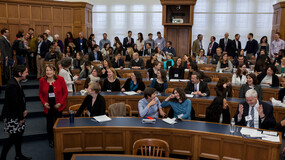
MFIA Clinic Lawsuit Succeeds in Lifting Gag Rules at Pittsburgh Jail
Employees at a Pennsylvania jail can now free to speak publicly about jail conditions after a settlement reached in a lawsuit filed by the Media Freedom and Information Access Clinic.

WIRAC Aids Communications Workers’ Union in Challenge of Contractor Mandate
The Worker and Immigrant Rights Advocacy Clinic represents the Communications Workers of America Local 1298 in a new matter.
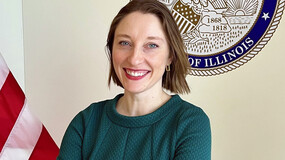
Kathy Hunt Muse ’09 Tackles Gun Violence in Illinois
Kathy Hunt Muse ’09, who started her public interest career as a Liman Fellow, discusses her work with the Office of the Illinois Attorney General.

Soros Fellowship for New Americans Announces 2024 Recipients
The Paul & Daisy Soros Fellowship for New Americans has announced its class of recipients for 2024.
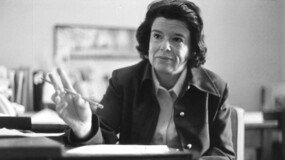
Yale Law School Mourns the Death of Trailblazing Professor Ellen Ash Peters ’54
Chief Justice Ellen Ash Peters ’54, the pioneering lawyer, professor, and jurist, died on April 17 at the age of 94.
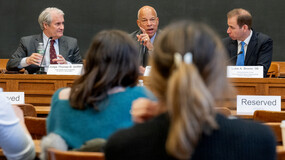
Crossing Divides Welcomes Secretary Jeh Johnson and Judge Thomas B. Griffith
The Crossing Divides Program hosted Secretary Jeh Johnson in conversation with Judge Thomas B. Griffith at Yale Law School on April 3.

Clinic Lawsuit Challenges VA Denial of Gender-Affirming Surgery
The Veterans Legal Services Clinic represents the Transgender American Veterans Association in a second federal lawsuit against the U.S. Department of Veterans Affairs, challenging VA’s denial of TAVA’s 2016 rulemaking petition requesting gender-affirming surgery.
“Vital Places”: Yale Law School’s Centers Enhance Intellectual Life
With wide-ranging scholarly work, the Law School's centers make a difference in communities across the country and around the world.


